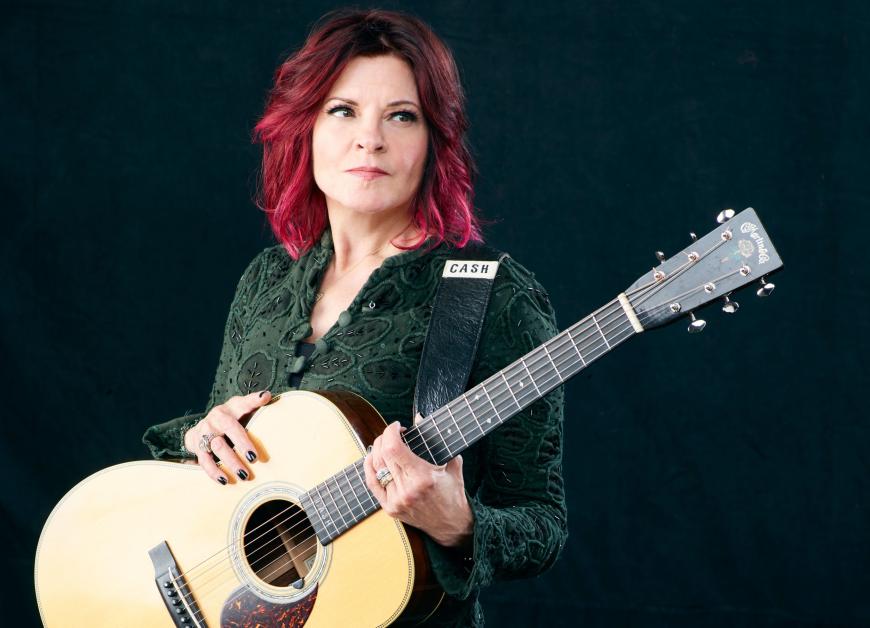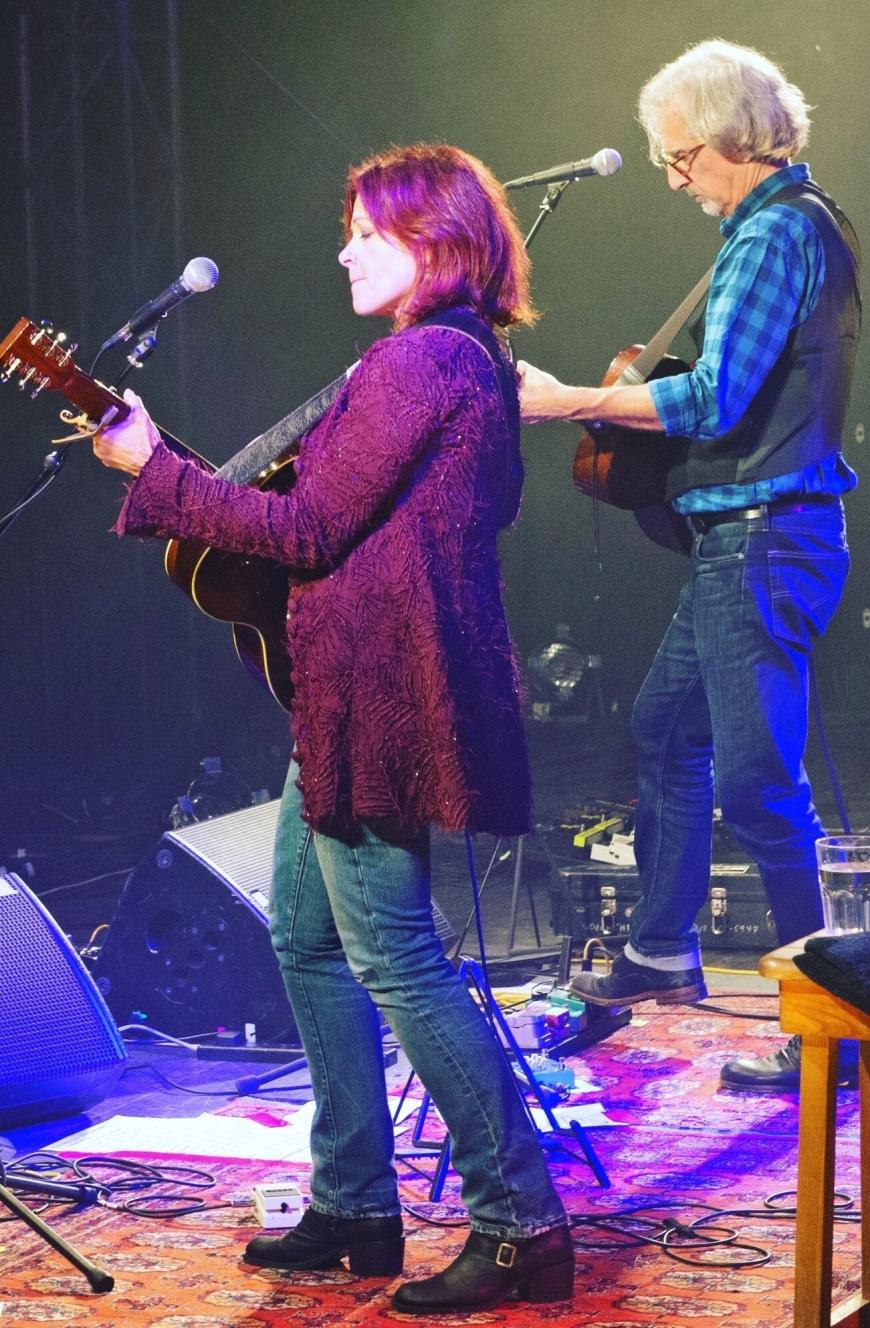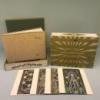
With a legacy as imposing and multifarious as Johnny Cash’s, there’s no way to encompass it on a single album. Rather than making a quixotic attempt to wrap up her father’s life in a concise musical statement, Rosanne Cash took a more elliptical path with her 2009 album The List. The concept was elegant, sentimental, and deeply gratifying, with the singer-songwriter interpreting a dozen folk and country standards gleaned from a list of 100 essential tunes that Johnny Cash recommended she learn as a budding 18-year-old musician.
In her first tour since the advent of the pandemic, Cash checks into the SFJAZZ Center Feb. 24–27 for a four-night stand with her husband, guitarist and songwriter John Leventhal; double bassist Mike Fain; and drummer Dan Rieser (they’ll be joined by The Milk Carton Kids on Saturday and Sunday). The quartet also plays Grass Valley’s Center for the Arts March 1 and Carmel’s Sunset Center March 4, revisiting The List and “reimagining my album,” said Cash, 66, in a recent phone call.
“They’re all covers and all important songs, and I haven’t performed a lot of them since 2010. We’re back in rehearsal, starting to work on those arrangements. I’m going to fit in a few of my own songs, and we’re going to do a few from the list that weren’t on the album.”
The tour unfolds at a fascinating moment in the evolution of her father’s reputation. At his death in 2003 at the age of 71, he’d attained a rarified spot in the American pantheon. Honored by halls of fame in rock, country, and gospel music, he transcended style and politics, even as his performances and activism stomped on third rails that run through our national consciousness. Cultural historian Michael Stewart Foley’s recent book Citizen Cash: The Political Life and Times of Johnny Cash argues that “without really intending it,” Cash “fashioned a new model of public citizenship, based on a politics of empathy.”
In a long essay in the December issue of The Atlantic, “The Impossible Politics of Johnny Cash,” Stephen Metcalf paints Cash as a bundle of unintegrated contradictions, stuck betwixt and between identities. Taking issue with Foley’s formulation, Metcalf sees privileging emotion over reason as a political bug rather than a feature.
“What thinking person in 2022 — amid the outrage and umbrage Olympics that is American life — still wants an emotional response?” Metcalf asks. “The case made by Cash is less on behalf of ‘empathy’ than of a world in which partisan affiliation isn’t a depressingly strong predictor of — well, everything else, including musical taste.”

Like Willie Nelson, Ray Charles, and Dolly Parton, Cash certainly confounds simpleminded divides between blue and red states. But what’s most interesting about Metcalf’s piece is a word that doesn’t appear in the text: Christian. Cash’s politics were guided by a specific kind of empathy, grounded in the dark nights he spent contending with his own brokenness. Insisting on the dignity of convicts and the imperative to redress the dispossession of Native Americans, Cash put his deep Christian faith into action (that and his passion for American history, warts and all). His 1964 concept album Bitter Tears: Ballads of the American Indian simply doesn’t fit into any political rubric.
Rosanne was quick to point out that her father’s support of the civil rights movement followed in the footsteps of Black stars like Mavis Staples and Nina Simone, “but he was ahead of his time on championing Native Americans,” she said. “I can’t say exactly why it resonated for him. When I was a teenager he said, ‘You must read Bury My Heart at Wounded Knee,’ and I know that aroused deep empathy in him. The same with a lot of his work around prison reform and poverty. He had suffered a lot in his life, and he recognized it in others. His faith definitely informed his social activism.”
It’s a line that Rosanne is walking these days. She delved into family history when she was working with the University of Arkansas to restore the house where her father grew up in a rural development funded by the New Deal. Johnny Cash was 4 years old when the last of several hundred lynchings in Arkansas took place in 1936. “I keep a list of all the lynchings in the stage on my desk to remind me every day,” she said.
Last year, she released “The Killing Fields,” a single benefitting the Arkansas Peace & Justice Memorial Movement. It’s a stark and forbidding account of a violence-scarred landscape that she wrote in the weeks after George Floyd’s murder in Minneapolis, “though it had been brewing in me for several years,” she said. “But even that turned into my own ancestry, and it has this arc, from the present to past to present, hoping for change in myself and my own lineage. I guess what I’m saying is the revolution happens inside first.”
“Music and art are revolutionary intrinsically,” she continued. “They open the heart and cause you to reflect. Stir you up and bring realizations. That in itself is a political act. I’m not good at writing protest songs. They sound like proselytizing. Steve Earle is really good at it.”
While she’s focusing on songs by other artists at the moment, Cash has had plenty of time for introspection and cultivating her own music in the past two years. She spent much of the pandemic downtime performing online benefits with Leventhal and writing new songs (including two pieces with The National frontman Matt Berninger).
She also penned her own article for The Atlantic, “I Will Miss What I Wanted to Lose,” about the disorienting early months of the pandemic. “And I’ve got a duet with Michael Feinstein coming out on this album Gershwin Country, singing ‘I’ve Got a Crush on You,’” she said. “It was so fun and so out of my wheelhouse.”
It’s a short hop from Gershwin to jazz, and she’s found a cozy niche at the SFJAZZ Center, where she’s performed in an array of settings, for instance collaborating with Ry Cooder on her father’s music and arranging a gals-night-out songfest with Lucinda Williams and Emmylou Harris.
“I love being at SFJAZZ,” she said. “They’ve been so good to me and let me explore so many things. It’s a home to me now. Really, I get to stay in one place for four nights. That never happens on the road.”


